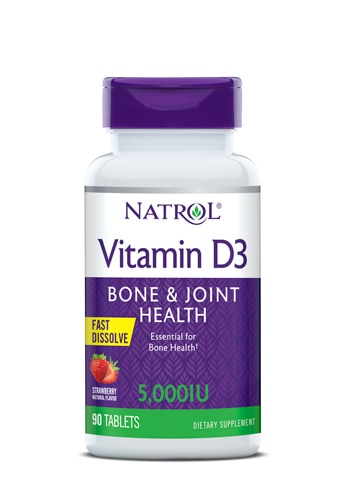While school may be out, it’s still important to pay attention to the alphabet during the summer. We’re not talking about the alphabet you recite in class, though. We’re talking about the alphabet of vital vitamins for the summertime.
“Alongside a healthy diet, certain summer-specific supplements can be helpful during hot-weather months for optimal health,” says certified holistic nutrition consultant Rachel Fiske, a member of the advisory board for the Smart Healthy Living website.
Whether you’re lounging at the pool or heading off on a family road trip, keep the following four vitamins in mind in conjunction with your summer escapades.
Essential vitamins for summer
Vitamin A
As noted by the University of California, San Diego, vitamin A helps form and maintain healthy skin, teeth, skeletal and soft tissue, and mucus membranes.
It’s the skin benefit of vitamin A that’s most critical during the summer. Since we tend to spend more time outside in the summer, it’s essential to boost the health of our potentially sun-exposed skin as much as possible.
The Office of Dietary Supplements at the National Institutes of Health says most people in the U.S. get enough vitamin A from food, so vitamin A deficiency is rare. However, if you’re not getting enough vitamin A from your diet, you might consider taking vitamin A supplements.
Vitamin A supplements usually come in the form of retinyl acetate or retinyl palmitate (preformed vitamin A), beta-carotene (provitamin A), or a combination of the two, according to the Office of Dietary Supplements. Most multivitamins contain vitamin A; supplements with vitamin A alone also are available.
For adults, the U.S. Food and Drug Administration (FDA) recommends 5,000 retinol activity equivalents (RAE) of vitamin A per day.
Vitamin C
Vitamin C is a nutritional workhorse.
This vitamin, also known as ascorbic acid, is an antioxidant that helps protect cells from free-radical damage, according to the Office of Dietary Supplements. Air pollution and ultraviolet light — two constants of outdoor activity in the summer — are common sources of free radicals.
Among other things, vitamin C also boosts our immune system, which can be weakened as a result of summertime travel and packed summertime calendars.
“While the winter months are best known for weakening your immune system, the summer months are your next worst perpetrators. The extremely warm temperatures contrasted with the blast of AC can result in cold and flu-like symptoms that are best warded off with vitamin C,” says certified health consultant Nate Masterson, head of natural product development for Maple Holistics, a provider of natural personal care products.
The Office of Dietary Supplements recommends daily vitamin C intake of 90 mg for men and 75 mg for women.
Typically, Americans get enough vitamin C each day from food and beverages (such as fruit juices), the Office of Dietary Supplements says. However, if you’ve determined your vitamin C levels are lacking, you might think about ramping up your vitamin C intake with multivitamins or vitamin C supplements.
Vitamin D
It seems odd that you might need to step up your intake of vitamin D during the summer, since our bodies produce the “sunshine vitamin” when our bare skin is exposed to the sun.
However, according to Harvard Medical School, sun-generated vitamin D isn’t dispersed equally. Factors such as time of day, geographic location, air pollution, age, skin color and sunscreen use might limit the effectiveness of the 10 to 15 minutes of vitamin-promoting sun exposure that’s recommended a few times per week.
If you’re not absorbing enough vitamin D from sunlight, eating vitamin-fortified foods and taking vitamin D supplements might help narrow the gap, according to the Mayo Clinic. Vitamin D doesn’t naturally occur in many foods. The average recommended daily amount of vitamin D for adults from 19 to 70 years old is 600 international units (IU).
“Contrary to popular belief, supplementing your Vitamin D intake is important during the summer, even though you’re likely outside more than you are during the winter,” says Dr. Terry Wahls, creator of The Wahls Protocol, a diet and lifestyle program aimed at helping people grapple with autoimmune diseases.
Vitamin E
While insufficient exposure to the sun can reduce absorption of vitamin D, too much exposure can lead to problems, too. For instance, sun damage can cause premature aging or, worse yet, cancer. That’s where vitamin E can come to the rescue.
“Vitamin E provides your skin with antioxidants to eliminate harmful free radicals and protect your skin from further damage,” Masterson says. “This vitamin is also known for its ability to replenish your collagen production, which is essential for maintaining your skin's elasticity and encouraging skin renewal. This is exactly what your skin needs to stay healthy during the hot, dry summer months.”
Additionally, vitamin E plays a role in fighting germs.
Various foods naturally contain vitamin E. It’s also added to some foods.
For adults, experts suggest an average vitamin E intake of 22.4 IU per day. If your diet isn’t delivering enough vitamin E, you might look at including supplements in your daily regimen. Most once-daily multivitamins offer about 30 IU of vitamin E, the Office of Dietary Supplements says, while vitamin E-only supplements usually contain 100 to 1,000 IU per pill.
“The doses in vitamin E-only supplements are much higher than the recommended amounts. Some people take large doses because they believe or hope that doing so will keep them healthy or lower their risk of certain diseases,” the office notes.
†These statements have not been approved by the Food and Drug Administration. These products are not intended to diagnose, treat, cure or prevent disease.




